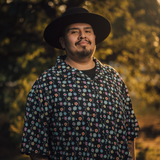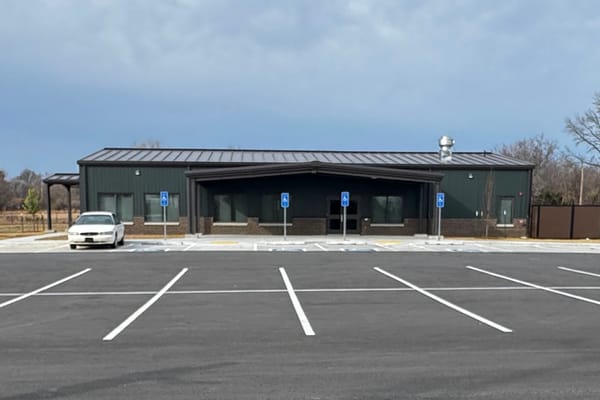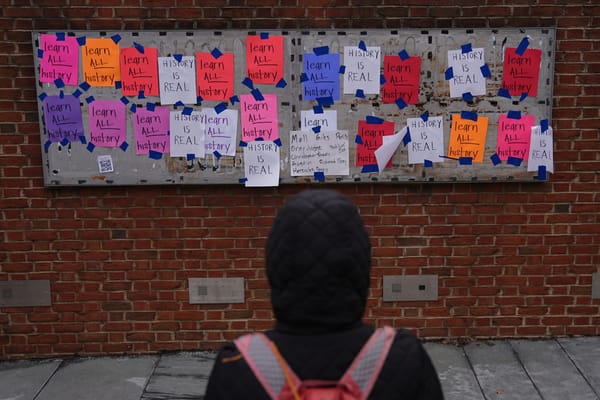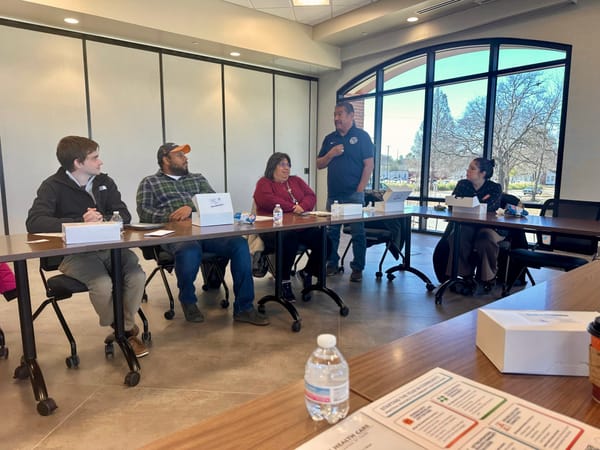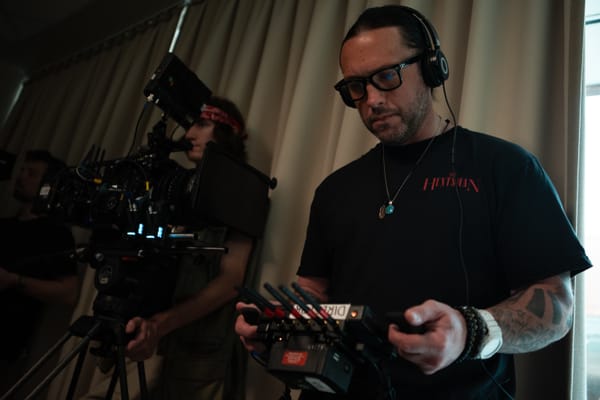Nichols centers Tribal co-governance as inclusion for Native community members begins to emerge
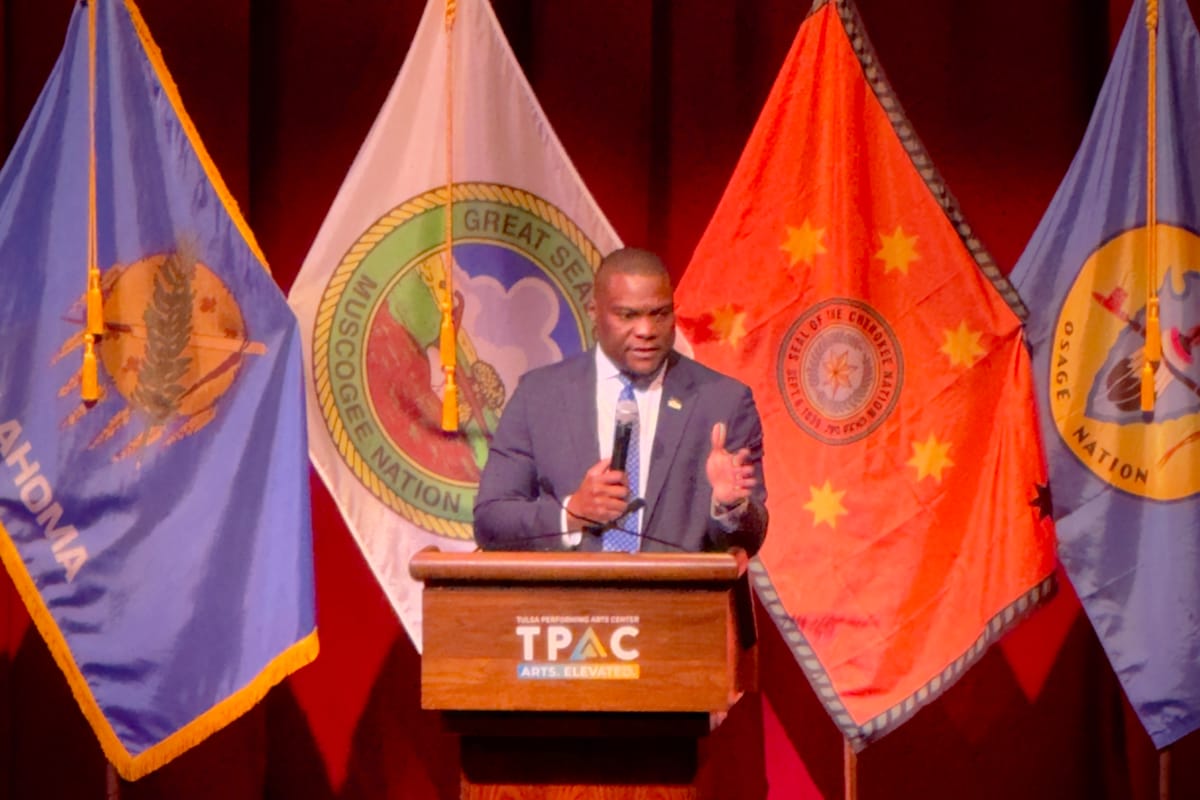
(TULSA, Okla.) In his first State of the City address on Nov. 12, Tulsa Mayor Monroe Nichols acknowledged the role tribal nations have played in the city and the importance of co-governing with tribal leadership.
Tribal leaders in attendance included Principal Chief David Hill, Chief of Staff Jeff Fife, and Attorney General Geri Wisner, all from the Muscogee Nation; and Cherokee Nation Government Relations Representatives Logan Lewis and Maggie Glory.
The Tulsa Indian Club performed, and Tulsa Deputy Mayor Crystal Krystal Reyes delivered a land acknowledgement.
“Oklahoma is home to many federally recognized Indian nations, and the City of Tulsa sits within the reservation lands of the Cherokee Nation, Muscogee Nation, and the Osage Nation,” stated Reyes in the acknowledgement.
“Each of these great nations have vibrant cultures, unique histories, and distinct languages,” she said. “We acknowledge and honor these nations, their respective citizens, their enduring commitment to the Tulsa community, and their land. We begin our event with gratitude, appreciation and respect.”
Nichols reflected on his administration’s efforts to work with tribal leadership and Native American community members.
“This year we took important steps forward,” said Nichols. “It all started with Amanda Swope, the city’s first Director of Tribal Policy & Partnerships.”
In June, the City of Tulsa signed a historic law enforcement agreement with the Muscogee Nation. The city agreed to stop prosecuting tribal citizens for crimes or traffic violations that occur in the Muscogee (Creek) Nation. A working group to establish goals between the city and Muscogee leadership was also created under the agreement.
Nichols acknowledged the role Swope, the city’s legal department, and the police department played in allowing the agreement to come to fruition.
“When that work materialized this summer, when we finalized a new agreement with Muscogee Nation, that allows for better coordination on municipal court cases,” said Nichols. “It allows our officers to continue to do their job while ensuring that municipal court cases are heard in the most appropriate court of jurisdiction.”
In his State of the City Address, Nichols reaffirmed the importance of these partnerships.
“You don’t have to fight about sovereignty,” said Nichols. “We can work together to ensure that we all stand in solidarity for it. Tulsa’s becoming a model of what strong tribal partnerships look like. Because the future of Tulsa depends on our ability to work hand in hand with our tribal neighbors, whether it’s justice, it’s economic development, whether it’s culture or community building, we must ensure that the DNA of this city is just as strong as the people who arrived here back in 1836.”
Nichols acknowledged that co-governing can be challenging. “We face complexities in how we navigate the world of co-governance or tribes,” he said.
He stated that the city is facing the challenge head-on: “We're embracing it with partnership and respect.”
Northeast Oklahoma has been home to tribal nations even before the forced removal of tribes like the Muscogee (Creek) Nation to Indian Territory. The Osage lived and hunted in the area prior to the 1800s.
The high number of tribal citizens in cities like Tulsa can also be traced back to urbanization policies during the 1950s through 1970s, which encouraged Native people to move to urban centers to further assimilate them to the country’s European American–dominated society. As a result, many Native Americans were relocated to cities like Tulsa, resulting in tribal representation far beyond the reservation land Tulsa sits on.
U.S. Census data from 2022 shows that members of 22 different tribes reside in the city’s limits, including Muscogee (Creek), Cherokee, Osage, Choctaw, Comanche, Delaware, Potawatomi, Kiowa, and several others.
In 2020, Tulsa Public Schools listed tribal representation even higher, citing thousands of students representing 68 tribes.
Despite these numbers, the City of Tulsa has long opted out of meaningful inclusion of Native American citizens, from leaving Native representation out of the hiring of its newest police chief to excluding Native Allotment history and other Native American history from its “Resilient Tulsa” initiative.
But along with advances in tribal co-governance, Native American representation appears to be making gains under Nichols’s leadership, too.
The day after the mayor's State of the City address, the city, in partnership with the Office of Health and Well-being, held their first Mayor's Health Coalition. Goals of the new initiative include identifying shared barriers to health and addressing the medical and social factors that impact well-being.
Dr. Jabraan S. Pasha serves as Chief Health Officer for the Office of Health & Well-being and Senior Advisor for the Community Health Office of the Mayor.
He said including but also expanding beyond tribal leadership is key to success in Tulsa.
“We have Cherokee Nation that was here today,” Pasha said. “I just had a conversation with Muscogee Nation and Secretary Terry and look forward to them joining us for our next event. We have Miss Carmelita Skeeter here from the Indian Health Clinic in town. And so bringing leadership from those organizations to help make sure that any issues or priorities for their people are brought to this group.”
Nichols touched on Native community representation during his final State of the City remarks.
“At a moment of deep national divides, we're choosing each other,” said Nichols. “White, Black, Hispanic, Asians, Native, young, old, Democrat, and Republican, we're choosing each other right here.”
The next opportunity to track Native representation in the City of Tulsa will occur on December 12, during the 2025 Tulsa Equality Indicators Summit. Crosswinds News will be there to cover it.

